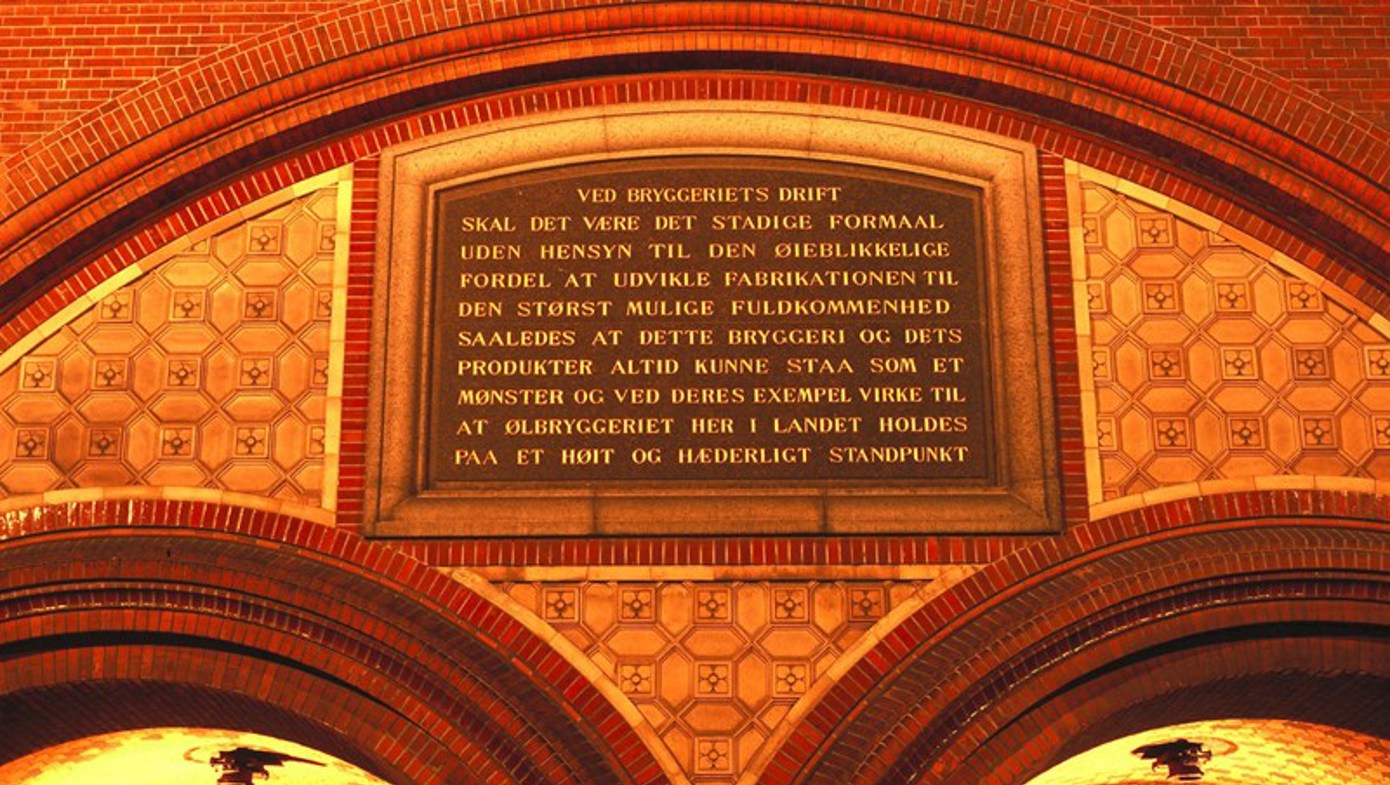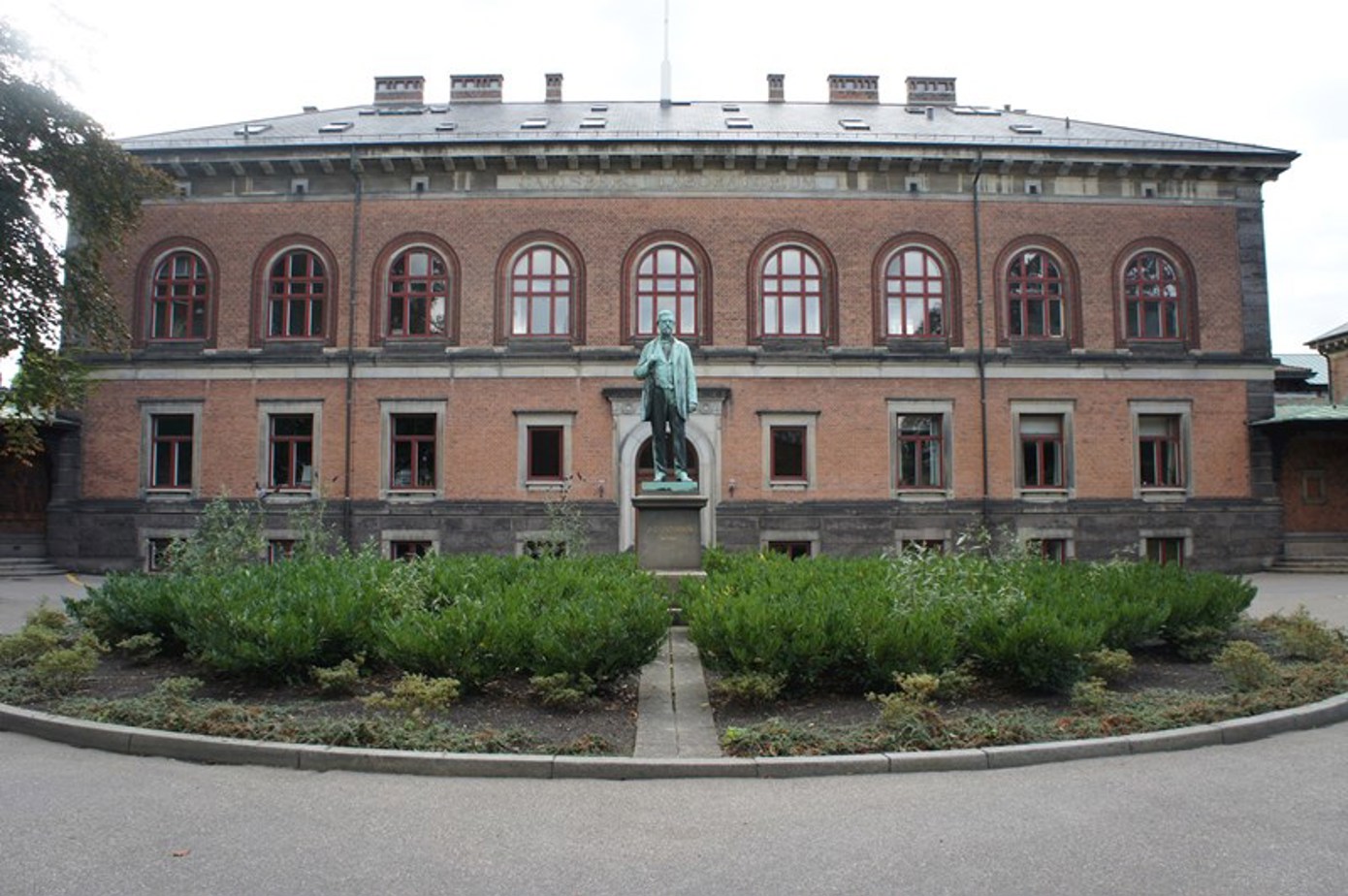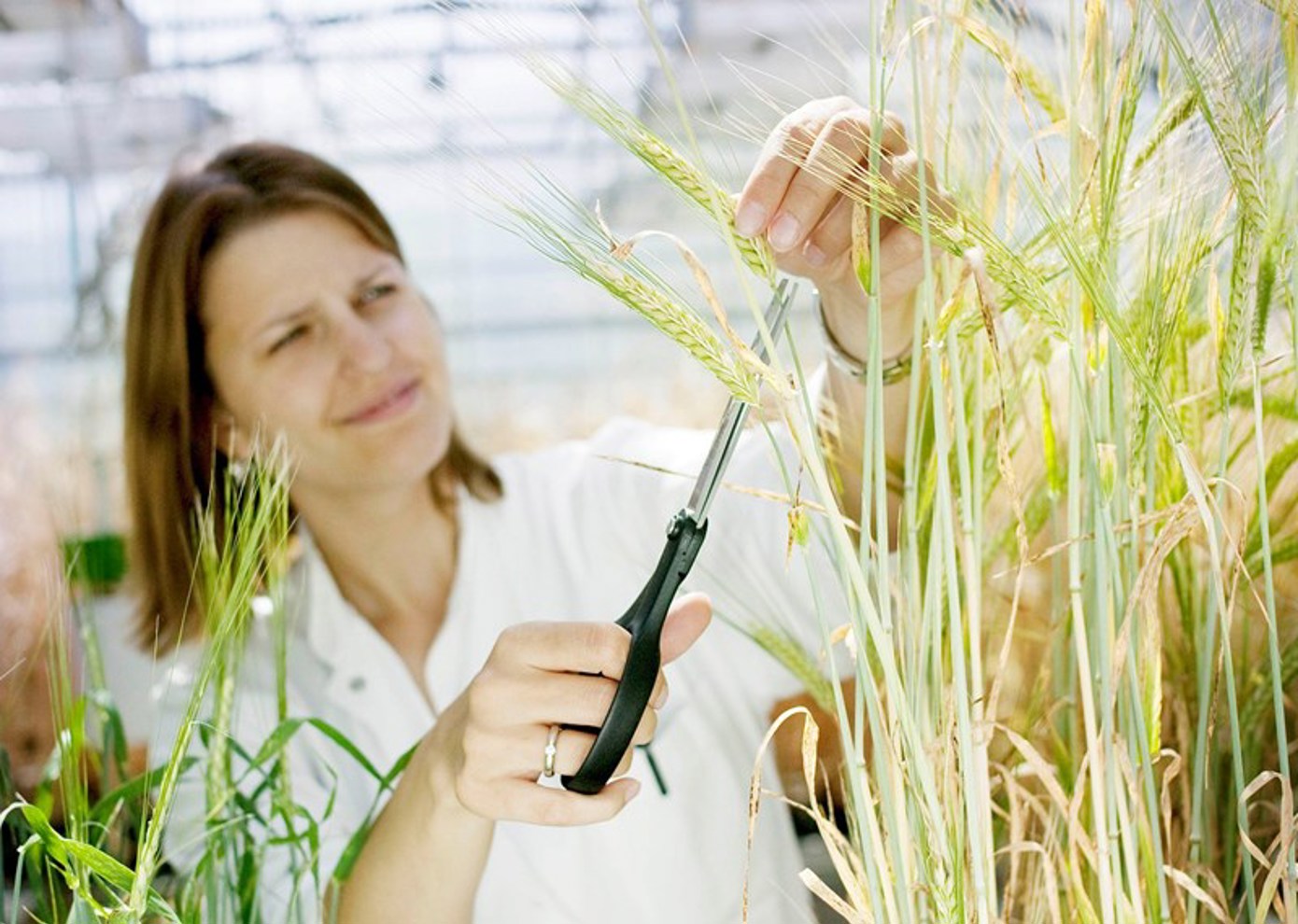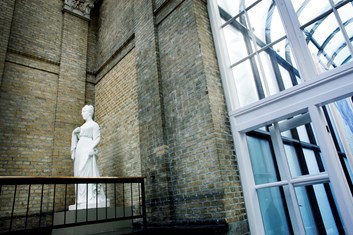
 The Carlsberg Foundation
The Carlsberg Foundation
The Carlsberg Foundation is one of the world's oldest commercial foundations. Here, ambitious brewing enterprise blossoms side by side with support for the finest science, scholarship, art and culture. The Foundation's Chairman is not just head of the Carlsberg Foundation but also Chairman of the Supervisory Board of the Carlsberg Group. It has been this way since 1876.
The Carlsberg Foundation was established in 1876, when J.C. Jacobsen secured the future of his brewery by transferring it to the Royal Danish Academy of Sciences and Letters. Since then, the Carlsberg Foundation has overseen the Carlsberg Group, ensuring that the brewery is run with the focus on innovation and high-quality products, and supported basic research within the natural sciences, social sciences and humanities. All in accordance with the Brewer’s wishes and vision. J.C. Jacobsen was particularly far-sighted when, in 1876, he created a Deed of Gift transferring Carlsberg to the Royal Danish Academy of Sciences and Letters.
At the time, the Academy served as a meeting-place for the Danish Elite researchers, as is the case to this very day. J.C. Jacobsen's decision was ground-breaking visionary and lasting. His idea was that the Carlsberg Foundation, with its roots in science, should ensure that, even after his death, Carlsberg would strive to continuously improve beer brewing and produce the highest-quality products. When J.C. Jacobsen dies during a visit to Rome on 1887, the Carlsberg Foundation assumes ownership and management of Old Carlsberg. The Carlsberg Group is currently the only global brewer owned by a commercial foundation.

 Vision
Vision
The Carlsberg Foundation’s task is to manage the legacy of brewer J.C. Jacobsen in such a way that his thoughts and ideas are reflected and respected, and so that the Foundation’s Charter is duly applied and adapted to modern principles, thereby helping set the direction for the company, science and society.

The Carlsberg Foundation has two main objectives:
- To be an active investor with a controlling interest in Carlsberg A/S, thus ensuring a decisive influence on the Carlsberg Group’s strategy.
- To support basic scientific research within the natural sciences, social sciences and humanities through the awarding of grants for socially beneficial projects.

We are brewing for a better today and tomorrow
In 1875, J.C. Jacobsen founded an organization known today as the Carlsberg Research Laboratory
From the day of its establishment, the Carlsberg Research Laboratory delivered a number of most exciting scientific breakthroughs in modern history. It was under its roof that in 1883, for the first time in the history of brewing, Professor Emil Christian Hansen isolated a pure culture of beer yeast Saccharomyces Carlsbergensis. And in 1909, Professor Søren Peder Lauritz Sørensen developed the pH scale. At that same laboratory, Professor Linderstrøm-Lang was the first to work on the description of protein structure. Then the innovative study on enzymes conducted at the Laboratory by Professor Martin Ottesen formed the basis for the work of Novozymes — the world’s leading company specializing in biological solutions.


Until 1972, the Laboratory was financed entirely by the Carlsberg Foundation. Eventually it joined Carlsberg A/S. Today, the Foundation provides generous fellowships to support its work

The Carlsberg Research Laboratory remains a pearl in Carlsberg’s crown. In the past few years, following the restructuring of the research activity, the Laboratory’s focus has shifted towards four directions: raw materials (barley), yeast, brewing ingredients and technologies. Its current goal lies in taking the Laboratory to the new “golden age” by focusing its attention on the initial vision of its founder

 In 2016
In 2016
The Carlsberg Foundation awarded fellowships to support scientists and brewers of the Carlsberg Research Laboratory who recreated the world’s first high-quality Carlsberg lager
Using sophisticated techniques, Carlsberg Research Laboratory has rebrewed the world’s very first quality lager. It is brewed with the original pure yeast which was developed at the Carlsberg Lab and which revolutionized the world’s beer brewing in 1883. The yeast has surprisingly survived 133 years in a beer bottle down in the brewery’s old cellars, and the leading brewing experts have now managed to rebrew what is considered the father of most modern day lager beers. In the old days, brewing beer was an unpredictable process that often resulted in undrinkable beer due to the phenomenon called ‘beer sickness’. However, in 1883, Carlsberg Research Laboratory revolutionised quality beer with its ground-breaking discovery of pure yeast, which made it possible to make quality beer from every brew. As beer sickness was a widespread problem back then, Carlsberg gave the pure yeast, aptly named ‘Saccharomyces Carlsbergensis’, away for free to other brewers. Today, most lager beers in the world originate from that pure yeast discovery, including major international brands.
“Without it, we wouldn’t have the type of beer that is now 90 percent of the world’s market”, says Britain’s leading Beer Historian Martyn Cornell. Recently, scientists at Carlsberg Laboratory made an extraordinary discovery in the old cellars of Carlsberg in Copenhagen, Denmark. They found one of the very first Carlsberg beers brewed with the original pure yeast from 1883. After one year of intense research, they were able to extract living yeast cells from the bottle. To celebrate the 140th anniversary of the Carlsberg Research Laboratory, the leading scientists and brewers at the Laboratory have now rebrewed the world’s first quality lager in the most authentic manner, using the original pure yeast and the exact same recipe, ingredients and brewing techniques as in 1883. The results is a testament to the historical discoveries at the Research Lab as well as the world leading quality capabilities of the modern day Carlsberg Laboratory.

 Free Research Funds
Free Research Funds
The Carlsberg Foundation supports fundamental research within the natural sciences, social sciences and humanities. The research funds it is supporting has long played a key role in the work of Danish scientists. They were of special importance before 1968, for at that time there was no governmental funding of scientific research. Some of the most prominent scientists, such as Professor Niels Bohr and August Krogh, had worked for several years, financed by the Carlsberg Foundation. The funding allowed the young Niels Bohr to go abroad. This enabled him to take his research to the international scale. Today, the Carlsberg Foundation is placing a greater emphasis on the matter of internationalization. The Foundation features a unique financing portfolio, of which the most part is directed at supporting research in humanities. The Carlsberg Foundation is the largest private organization that finances research of this kind. In particular, the Foundation is financing the archeological excavations in Europe and the Near East.
Niels Bohr and August Krogh had worked for several years on the strength of the support from the Carlsberg Foundation
The Carlsberg Foundation nurtures and supports the Museum of National History at Frederiksborg Castle, which is located in Hillerød, Denmark. This museum stores and constantly acquires new items depicting Denmark’s history from the Middle Ages until today. The museum’s buildings are state-owned and supervised by the Ministry of Culture of Denmark, which is responsible for keeping the castle in good state. Brewer J.C. Jacobsen cared a lot about Denmark and its status in the world. In view of this, the Museum of National History at Frederiksborg Palace has recently assumed a more international profile. Thousands of people from all over the world attend the museum each year.
Apart from this, it successfully cooperates with numerous foreign organizations. The museum’s collections are exhibited at such acclaimed museums as the palatial complex Forbidden City in Beijing and the Catherine Palace in the suburbs of Saint Petersburg. The museum is also home to the National Portrait Gallery of Denmark, where a bi-annual portrait competition is held attracting artists from all over the world. The best works are prized with the Carlsberg Foundation Portrait Award. In 2015, thanks to the special grants awarded by the Foundation, the Museum carried out some research in cooperation with the National Portrait Gallery in London.

 The Tuborg Foundation
The Tuborg Foundation
The Carlsberg family extended after merging with the Danish brewery Tuborg. In keeping with its charter, the Tuborg Foundation designs and implements socially beneficial initiatives, including those useful for the industry. Over the years of its existence, the Tuborg Foundation has granted financial aid to many organizations related to sports, theater and music. The Tuborg Foundation also supports research activities, for example, the Tuborg Research Centre for Globalization and Firms at Aarhus University and the Center for the Study of Civil Society at Copenhagen Business School. In 2015, the Tuborg Foundation unveiled a new strategy. The Foundation will keep supporting local associations, yet it has set out to allocate much more resources to a long-term cooperation with recipients of grants. The Foundation will now focus its attention on charity and non-profit organizations that create value and prove socially beneficial. It strives to act as a catalyst of collaboration between volunteers, the government and the industry in order to resolve social challenges through using novel sustainable methods.
The Foundation has focused its attention on charity and non-profitable organizations that create value and prove socially beneficial

 The New Carlsberg Foundation
The New Carlsberg Foundation
It was established in 1902 by J.C. Jacobsen’s son, Carl Jacobsen, who was a passionate art collector, contrary to his father’s wishes. Not only did Carl Jacobsen funded the establishment of the New Carlsberg Foundation out of his own pocket, he also transferred his brewery Ny Carlsberg to the New Carlsberg Foundation. This ensured that the new foundation would receive a share of the brewery’s profit

The New Carlsberg Foundation supports Danish museums by purchasing artworks and financing historical research projects
The museum exhibits a precious collection of Greek and Roman statues, Egyptian artifacts and pieces of arts by French impressionists. Like the Museum of National History, the Ny Carlsberg Glyptotek has recently set a course for international development, and in 2015, it curated the Gauguin's Worlds exhibition for MUDEC – Museo delle Culture in Milan. The museum’s buildings and the large private collection of works of arts were given to the city of Copenhagen by Carl Jacobsen as a gift


 The Carlsberg Foundation is the model of the future
The Carlsberg Foundation is the model of the future
A research study suggests that commercial foundations cause a significant positive effect to the society comparing to other forms of commercial property. According to a research conducted by Professor Steen Thomsen of Copenhagen Business School, which was funded by the Carlsberg Foundation, industrial foundations act as active business owners and exercise direct powerful influence. If a company’s controlling shareholder is a foundation, it can focus on long-term goals.
Therefore, the far-sighted project by Brewer J.C. Jacobsen to establish the Carlsberg Foundation and its undeniable importance for the society still serve as an incredibly valuable example

 In 2020, the Carlsberg Foundation donated 95 million Danish kroner for research and measures to combat the coronavirus pandemic
In 2020, the Carlsberg Foundation donated 95 million Danish kroner for research and measures to combat the coronavirus pandemic

Want to know more?
Click below to explore furtherCentral & Eastern Europe and India
-
Azerbaijan
-
Belarus
-
Bulgaria
-
Canada
-
Croatia
-
Estonia
-
Greece
-
Hungary
-
India
-
Italy
-
Kazakhstan
-
Latvia
-
Lithuania
-
Serbia
-
Ukraine






